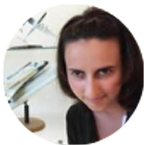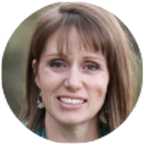Recorded: April 13th at 7pm EDT
Description: The purpose of this panel discussion is to explore interactive science labs and demonstrations as a way to engage students and support learning in a remote setting. Hands-on activities are the most effective way to engage students in science and to provide access to students of diverse abilities. Because of the pandemic, many schools and districts have moved some or all of their instruction online. This has created a challenge for educators to translate in-class experiences to virtual ones. Join master STEM educators, Channa Comer, Nicole Murawski, and Lynn Jorgensen in this webinar to explore the use of interactive science labs and demonstrations to engage students in meaningful science content.
Moderator:
Rebecca Vieyra is the Coordinator of the Inter-American Teacher Education Network at the Organization of American States. Previously, she served as the K-12 Program Manager at the American Association of Physics Teachers. In this capacity, Rebecca managed collaborative grants valued at $8.5M total from NASA, NSF, and private foundations on projects associated with science teacher leadership, computational modeling in physics, and astronomy education research. In her free time, she works with her husband to develop Vieyra Software mobile sensor apps for science education, which support over 1.5 Million students, teachers, and other STEM professionals worldwide.
Panelists:
Channa Comer is a master STEM educator who started her career in education in 2007. Over the years she has served in the classroom, as a school-based teacher leader, an out-of-school time curriculum director, STEM club founder, STEM instructional coach, teacher mentor, professional learning facilitator, and adjunct instructor. In addition to her work in education, Channa has experience in not-for-profit project management and administration. As a master STEM educator, Channa has been profiled in the book Teach Like a Champion 2.0 by Doug Lemov, and has been featured in both local and national media. Channa is an alumnus of the Albert Einstein Distinguished Educator Fellowship and the High Tech High Graduate School of Education New School Creation Fellowship programs. A New York City native, Channa is a proud product of public education. She is a Magna Cum Laude graduate of Baruch College in New York where she earned her Bachelor of Business Administration, she holds a Master of Science in Education from The City College of New York, and is currently pursuing her doctoral degree in Education Leadership.
Nicole Murawski has a bachelors of science in Physics and Mathematics, and a Master’s in Science Education. She has been a teacher of physics, earth science and mathematics for the past 24 years. During the 2020-21 school year, she took a leave of absence in order to stay home with her school-aged son and support his remote learning. During this time, she has been involved in Physics Education Research for the American Modeling Teachers Association with the Magna-AR app from Physics Toolbox. Nicole has also been involved in reading and writing for the AP Physics 1 exam for the College Board and leading workshops as an Ambassador for STEP UP.
Lynn Jorgensen has been teaching physics (AP 1, 2, and regular) for Gilbert High School since 2015. In that time period, she has worked to strengthen women and underrepresented in their pursuit of STEM courses as well as breaking down barriers to make physics more accessible to all students. She has been an ITEN teacher fellow since 2019, and her experiences have been published in the February issue of Conexiones, a journal published by the Ministry of Education, Costa Rica. When schools made a dramatic shift to online learning last spring, Lynn developed a fully online optics unit, where students performed a blend of at home experiments and online simulations. She has participated in presenting her activities in both individual and group webinars through ITEN, AMTA, and AAPT. Lynn is currently working on her Masters Degree with ASU.



